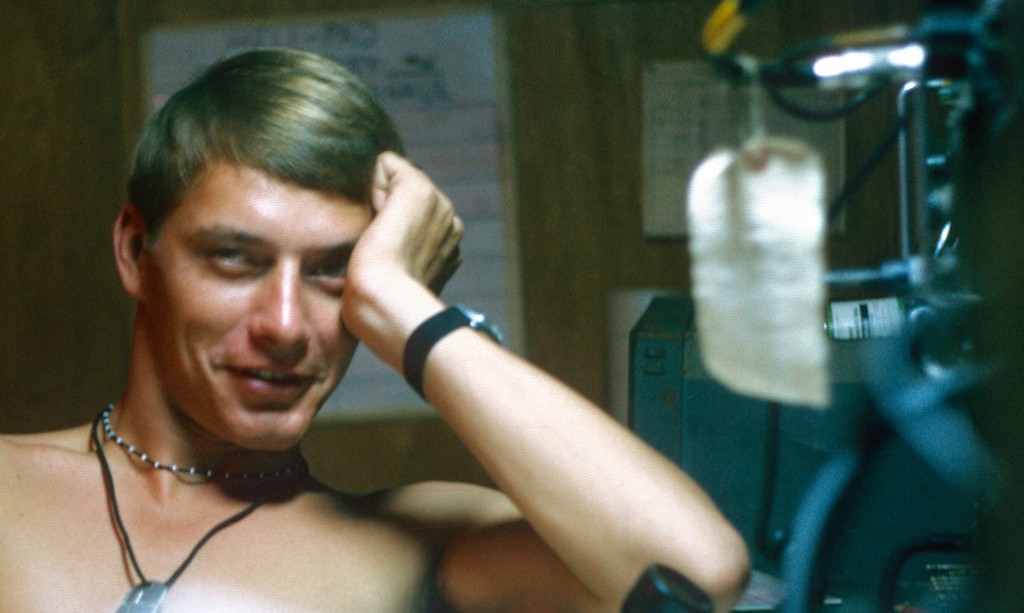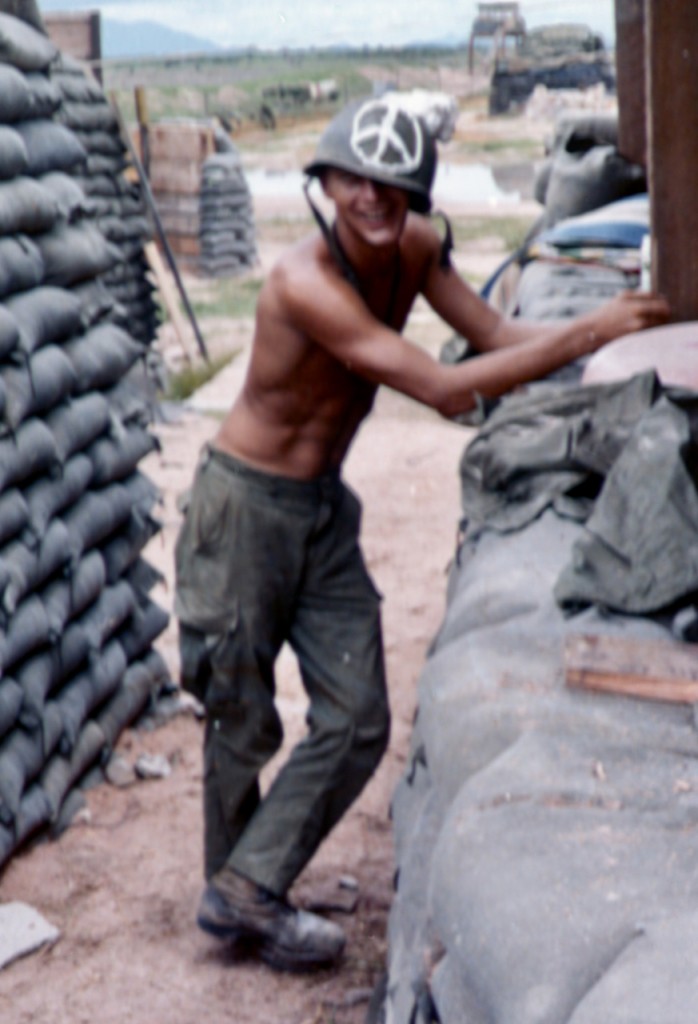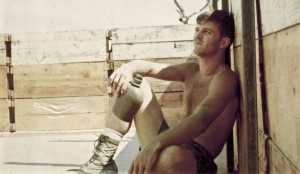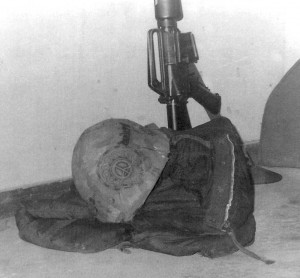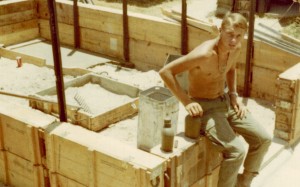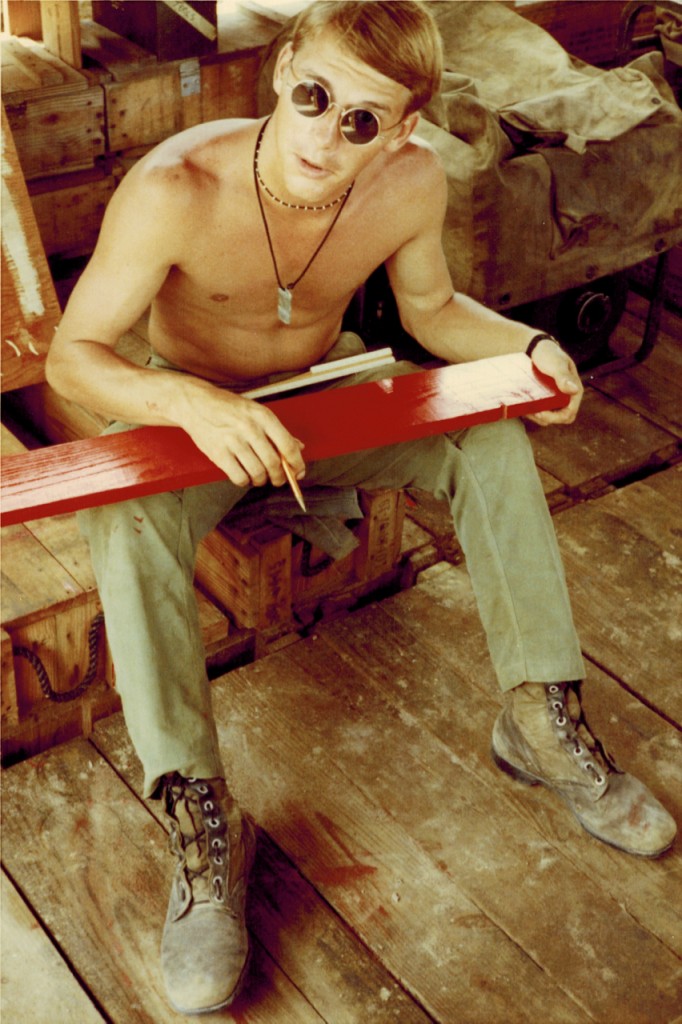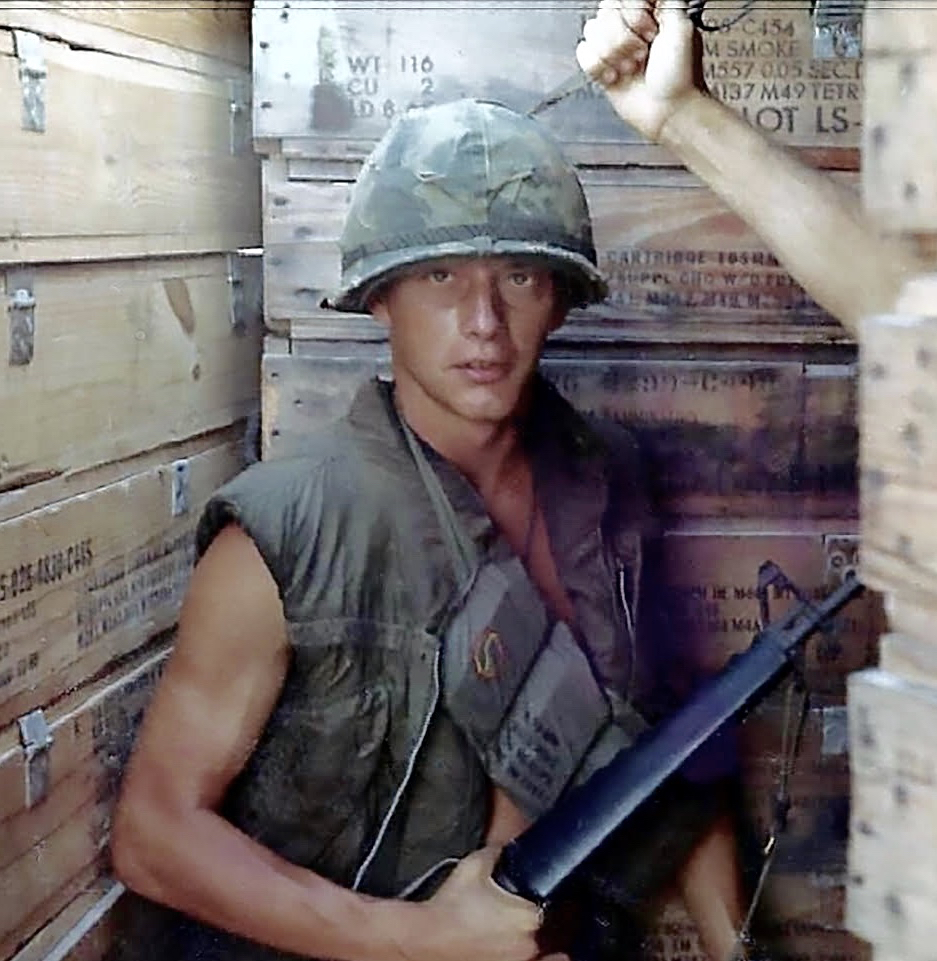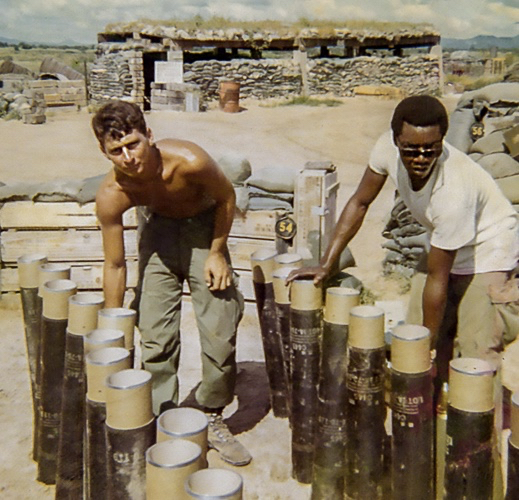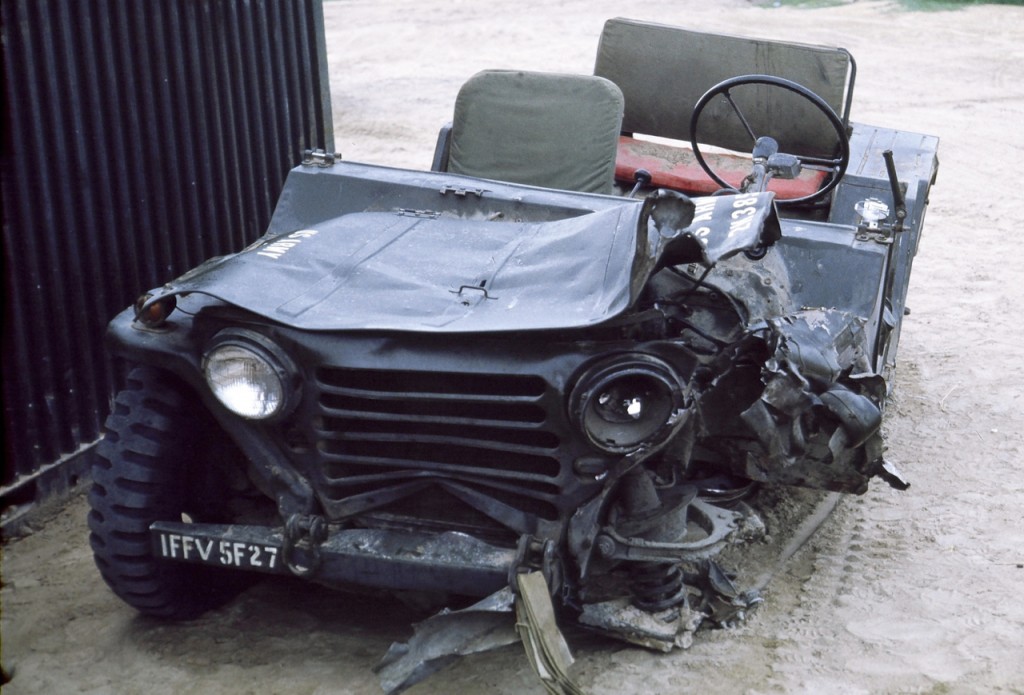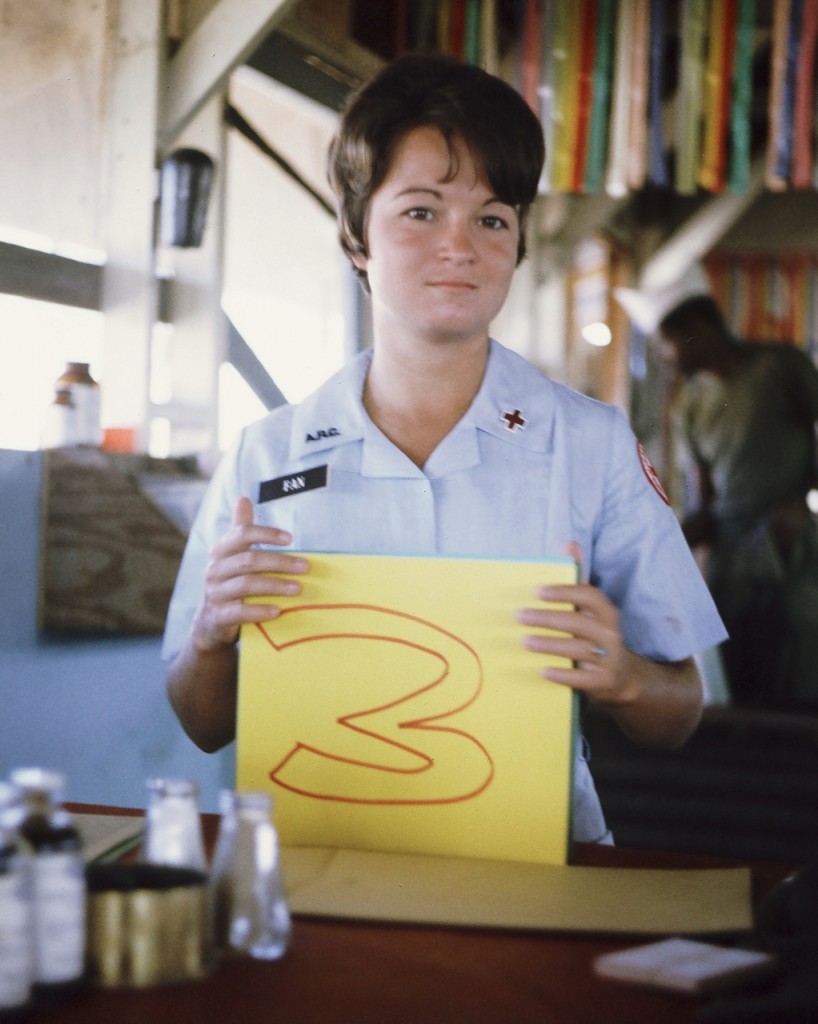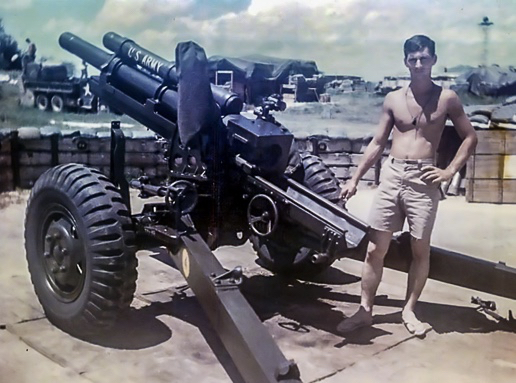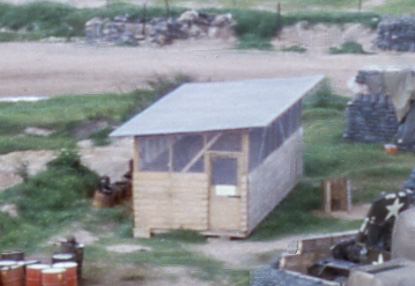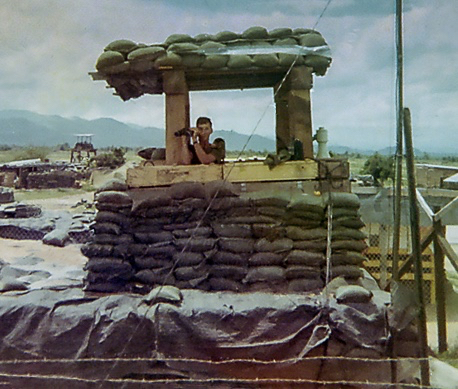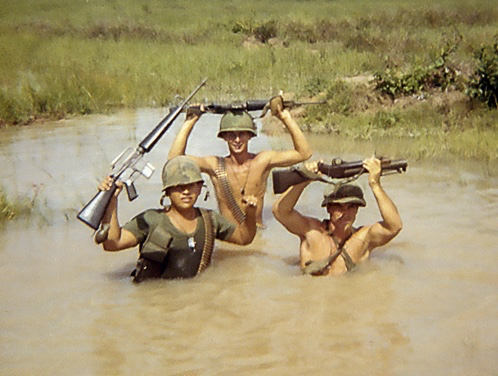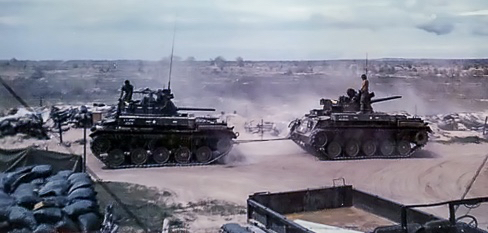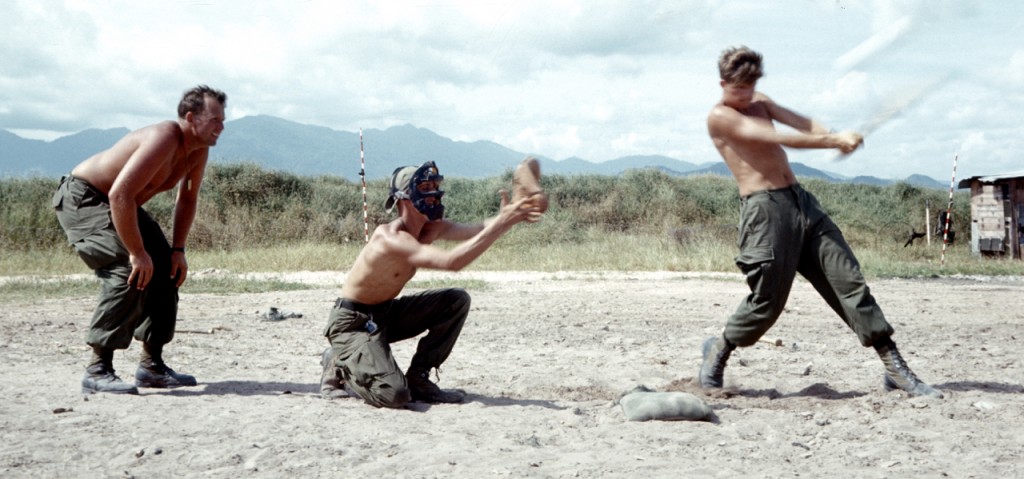Back To School
The Army had never sent me where I asked, with this exception. While still in Vietnam I asked if it would be possible when I returned to the states to be stationed at Ft. Dix, New Jersey, and they said yes. Ft. Dix is 55 miles from Penn Law School in Philadelphia, which allowed me to work at the fort in the morning and take classes in the afternoon. I would work in the Courts and Boards section at Ft. Dix from 6:00 AM till noon prosecuting cases, and then go off to a 1:00 evidence class. I would race to school, park illegally and run to class, and it worked. I did not have time to go home and change, so I showed up in my uniform. At this time, the Fall of ‘71, Cambodia was underway and protests in the universities around the country were in full swing against the Cambodian incursion. There were banners in the middle of the law school that said: Get out of Cambodia.
I showed up in the law school in my uniform every day. The students didn’t know what the hell to do with me, and some were intimidated. I have to confess, although I am mild mannered myself and I usually don’t do this, but there was one young woman who screwed up her courage one day and asked me why I wore my uniform to school. Instead of telling her the truth I could not help myself, I told her it was because I was such a patriot. I was not a pro-war guy, I was actually anti-war. I was being sarcastic and said it with a smile, but I think she took me seriously because she never talked to me again.
I was not treated as badly as some veterans on campus. Most veterans just got ignored, which is being treated badly enough. The inability to do what Doris Kearns Goodwin later said, to distinguish between the war and the warrior, was pretty bad in those days. I didn’t find a lot of open hostility, but nobody wanted to acknowledge it or talk about it. Which was not good for people returning.
Picking up my law studies after Vietnam was wonderful. Most people think that by the third year of law school you’re getting tired, maybe bored or a little out of sync. Law school’s hard, but for me, no offense to the military, it was like an intellectual feast to go back to school after being in the Army. I’d had this break, and I came back very enthusiastic about school. I had the opportunity to be a research assistant for a famous professor in the area of federal courts when he was working on his book. He became my mentor and from that all kinds of goods things happened for me.
Jon finished first in his class all three years at the University of Pennsylvania law school, the two years before Vietnam and the one after.
Clerkships
I was a good student and I had spent a summer at a premier law firm in LA before Vietnam. I wanted a federal court clerkship, but when I returned from Vietnam it was late in the application process and the clerkships had already been snapped up.
At the appellate level, federal court clerks mostly conduct legal research, prepare bench memos, and draft opinions after discussing cases with the judge.
Through a nice fluke, one of my original law school classmates was clerking for a federal judge in New York. The appellate court judge in the chambers next door had a whole stack of applications, but was still looking. Long story short, I got an interview with Judge Walter Mansfield on Veterans Day 1971. He calls me into his chambers, we meet, and it’s like a bromance. I go to clerk for him right out of law school from ‘72 to ‘73. He becomes the closest I ever came to having a surrogate father. He was just a brilliant judge, a wonderful man, and a super duper war hero in WWII. Walter Mansfield was a partner at the law firm headed by Wild Bill Donovan, who started a clandestine operation when the war broke out. It was then the Office of Strategic Services and eventually became the CIA. Mansfield spends a year behind Nazi lines with Czech partisans, and eventually escapes through Greece. Then he spends a year behind Japanese lines in China. A fabulous human being, very modest, brilliant, one of the most excellent role models you can imagine. If you go to the U.S. courthouse in Foley Square in lower Manhattan there is a tree memorial on the plaza dedicated to him.
Then people tell me: You should apply for a clerkship at the Supreme Court. I thought that would be cool, so I gave it a shot, but of course that would be like getting struck by lightning. I end up having interviews with three Justices: White, Stewart and Blackmun. Justice Byron White makes me an offer to be his clerk the following year, which I accept.
And he’s another war hero, and a football star, and an extraordinary human being. Justice White was the Walter Payton of his day. He goes to the University of Colorado, where he is an all American and runner up for the Heisman trophy. The Rocky Mountain sports writers described him as the guy who ran around everybody and gave him the nickname Whizzer White, which he hated. He is drafted by the Pittsburgh Pirates (today’s Steelers) and becomes their highest paid player. He leads the NFL in rushing his rookie year. He played offense, defense, special teams, scored a bazillion points. You’ll find him in the national football hall of fame in Canton, OH. He gets a Rhodes Scholarship and goes to England to study, putting off playing professional football. At the time the Ambassador to the Court of St. James is Joe Kennedy. The ambassador had a practice of inviting all the Rhodes scholars from America to his house. His son John Kennedy is there and the two of them become fast friends. They take a trip together to Germany, and they see that war is coming. They see what Joe Kennedy did not see. During the war, White is a naval intelligence officer, and guess who writes up the report of John Kennedy’s PT-109 incident in the Pacific? Byron White. White ends up being a war hero himself. He is on a ship hit by a kamikaze, on the bridge with a couple other officers. They think they are going to die, but the plane hits a guy wire and crashes into the lower part of the ship. The ship is on fire. By this time White is a celebrity, but he doesn’t care, he does his job. He runs down into the fire and pulls people out. After the war he goes back to playing professional football and graduating from Yale Law School, first in his class. Upon graduation, he clerks for Chief Justice Vinson on the Supreme Court. President Kennedy nominates White to the Supreme Court in 1962, making him the first Supreme Court clerk to become a Supreme Court Justice. An amazing life considering he grew up during the Depression pulling sugar beets in the field.
I start clerking for Justice White the Fall of ‘73. This was during the Watergate era. I was there for that whole period, when the impeachment proceedings were underway, when special prosecutor Archibald Cox was fired and Leon Jaworski replaced him. The Nixon White House Tapes Case, where the Supreme Court ordered the President to turn over tapes connected to the Watergate break-in, was the last case of the term before I left. I finished my clerkship nine days before Nixon resigned.
Academia
Now that I had clerked for two federal court judges, I was courted by a number of law firms. But I liked O’Melveny & Myers, the firm in LA I worked for that summer before going to basic training. I had heard from Warren Christopher while in OCS, and then from Phil Irwin, a partner in the same law firm, while I was at battalion in Phan Rang. I had met Phil before going into the Army, and he was the one who brought me back to LA. A wonderful guy. I understood that his dad by the way was a brigadier general. Phil is a wonderful, wonderful tax guy with a photographic memory. I loved working there and thought I would stay there forever.
I get a phone call a little over a year after joining the firm from my mentor from law school, the federal courts professor, and he has moved from Penn to Berkeley law school. He says, Are you interested in teaching? Because you should be. If you like I will introduce your name around at Berkeley, USC, Stanford and UCLA law schools. I liked what I was doing, and did not see myself teaching law as a refugee from practicing law. I was not unhappy, but I thought: You know, here’s one big difference between being a practicing lawyer and being a law teacher. When you’re a practicing lawyer you work on the agenda your clients need you to work on. You’re solving their problem. Which is fine and interesting. But if you become a professor, you set your own agenda, and you work on the things that interest you. I was getting more and more interested in the parts of my job that took me into the library to figure things out, because I liked that side of the law.
I interviewed with the UCLA law faculty, and I had more fun being interviewed by this group of people that any set of job interviews I’d ever had in my life. I just sat around all day talking to brilliant people about interesting ideas. I thought: Wow, this is really a great environment, stimulating all the time.
So I joined the UCLA law faculty in 1976. I bought a home, had a kid, started at the law school and took a salary cut, all within the span of three months. Mostly I taught constitutional law and federal courts, and I edit a textbook on constitutional law, which I update every year. I became Dean of the law school in 1998, something Warren Christopher had warned me about. He had told me before I went to UCLA that eventually they’d want me to do administration. I did take advantage of him later to deliver a commencement address at one graduation ceremony during that period, and it was one of the best ever given.
Way More Than 40%
I retired from the law school as an emeritus professor in 2013. I did not need to, but I had been at the law school a long time, and I still have been teaching one course a year. I wanted to travel, which is difficult as a teacher, and I wanted more freedom in general to do non-profit work.
I got my wish, but recently the Chancellor of the university recalled me from retirement to head the long standing, complex relationship between UCLA and the Veterans Administration in West Los Angeles.
The West LA Veterans Administration owns three hundred and eighty-eight acres close by the UCLA campus, separated only by highway 405. It serves the largest population of veterans in the country and is possibly the largest physically. We at UCLA have had a seventy year relationship with the VA, essentially since UCLA was formed. Our medical school, for example, was formed in 1948 and for the first seven years before a university hospital was built on campus, our teaching hospital was the VA hospital. We’ve trained doctors at the VA for decades.
Disabled and homeless vets have flooded into LA as a result of the Iraq and Afghanistan wars—and the hospitable weather, of course. We have the largest homeless veteran population in the country, and therefore the largest needs. The VA initially did not do a good job responding. They were incompetent, frankly.
For the last fifteen or twenty years the VA land has been very poorly managed. Sizable portions, some of the most valuable land in America, were leased to various private enterprises and institutions at below market rates. Worse still, the lease revenue had not been used wisely for vets, whom this VA had not been taking care of as they should. A real travesty.
A lawsuit was brought by a set of plaintiffs and a group of fancy lawyers here in town for failure to keep the property a “home for disabled veterans,” as required by its 1887 land grant. The VA and representatives of homeless vets reached a settlement in 2013 to do a better job of using the VA land for activities that benefited veterans, including the construction of what looks to be 1200 places for permanent supportive housing for homeless vets over the course of the next decade.
Last year, the Chancellor of UCLA entered into an agreement with the Secretary of Veterans Affairs that, besides what the university is already doing for vets, UCLA will create a series of new programs at the West LA VA to benefit veterans for the long term.
There is yet another aspect to this situation. At the Phoenix VA, the wait list was so long people were dying before they got their appointments. General Shinseki resigned as the Veterans Affairs Secretary, and President Obama replaced him in 2014 with Bob McDonald: Chairman, President, and CEO of Procter & Gamble. Bob McDonald swept away the incompetent leadership of the West LA VA, and replaced them with the best people from around the country, to include specialists and a national expert on homelessness.
As a result of recent legislation restoring the West LA VA’s authority to lease land on the campus so long as the activities overall are veteran-focused, we are at the point where we can begin implementing the agreements between UCLA and the VA. There are a lot of vets suffering from PTSD and drug abuse and physical disabilities. And women veterans have a whole unique set of traumas. It’s a massive but terribly important set of problems for vets. If we can accomplish what we have on the drawing board, the partnership between UCLA and Veterans Affairs will be a model for the nation.
We are talking about transforming a fifteen-acre veteran’s garden that had been allowed to deteriorate, so that vets can grow things for farmers markets and maybe become entrepreneurial. And we can offer therapeutic activities such as yoga. And we’ve committed to introducing adaptive and recreational therapies That’s one piece. As a first step, just last week a group of volunteers from the Student Veterans of America joined with UCLA, the VA, and Home Depot, and cleaned up the front portion of that garden for planting. The long term vet groundskeepers were thrilled. Much more needs to be done, but we have a plan.
We are setting up a UCLA Veterans Legal Clinic on the VA campus, which we are very excited about. Our law students will represent vets with their legal problems.
We are going to have a family wellness and resource center. It is a very innovative concept one of our absolutely magnificent doctors in the psychiatric center has already implemented on military bases around the world. It will help family members who are not themselves vets or not themselves disabled. It will provide therapies for families, for example, so that children will have decent places to be while husbands and wives are helping the vets recover. A very innovative program that seeks to prevent transitional dysfunctions before they occur.
There will be a center of excellence for vets dealing with co-occurring disorders, which will be mostly for homeless vets who have PTSD and substance abuse problems. It turns out that for vets who have one problem, such as a physical or mental disability, you treat that one condition directly. But for vets with co-occurring disorders, you do not treat each condition separately. You have to deal with the special co-occurring issues and how they interact. We are learning new approaches all the time, and we have people at UCLA who know how to do these things. We have the innovative researchers and psychiatrists. And we’ve created interdisciplinary fellowships.
One of our English professors is teaching a creative writing class for vets on the VA campus. Which they LOVE. I was recently asked to facilitate the transportation of these vets to a Hollywood facility where Tim O’Brien, who wrote The Things They Carried, did a reading from his book and signed books for these guys. I read the book several years ago. It is beautifully written and well worth reading. To these vets in the creative writing course, many of whom have also read the book, it was very meaningful.
I’m the guy who is supposed to make sure all this happens, and is implemented as a joint partnership. So all of a sudden I’ve got all kinds of new best friends at the VA. I am spending a lot of time over there. And I’ve got my UCLA people I have to get together to figure out how we go ahead with the partnership in a way that is productive for UCLA and the VA. It’s important to understand that we cannot be the VA. We can’t take over their job of treating people. We can design systems and help implement them. Our people still have full time jobs at the university.
Being retired from the university means I can be recalled to do no more than a 40% job. It’s designed to prevent people from double-dipping: retiring on full pension and immediately returning to the same full time job. What that means for me is I can’t be paid for more than 40% time. You can believe that with this new VA job, and teaching and updating my textbook, I am way more than 40%. On the other hand it is energizing to feel I can do some good.
I also am involved—separately from my UCLA job, though with some important overlap—with this other little piece that Bob McDonald created called the Community Veteran Engagement Boards (CVEB). They exist around the country. The idea is that Veterans Service Organizations and others who are active in helping vets in the community act as a private group working pro bono with VA officials as a two way communication link between what veterans need and what the VA has to offer. It’s fine to know what you think people want and need, but you don’t know exactly until you have this link. And vice versa, this is a way for the VA to communicate to veterans what the VA has available. A lot of vets don’t take advantage of services because they don’t understand what’s available. They may not be that sophisticated in getting on their computers and searching on-line for VA services. We have spent the last many months creating the LA Regional CVEB and will be working to identify gaps in what is being provided to vets throughout the vast LA Region and to propose solutions.
Full Circle
When I became battalion adjutant in Phan Rang in March of 1971, I took it as my personal mission to look after the guys in the field. I had wanted to stay in the field with the guys at LZ Sherry, and in many ways I still felt like one of them. One of my men in the rear felt the same way as I did and he became my main support for making sure our guys in the field were taken care of. He was a talented guy, and he painted the regimental emblem on a small stone to make a paperweight for me. A really sweet gesture on his part. He did it out of gratitude. Not a huge deal to him, but a huge deal to me.
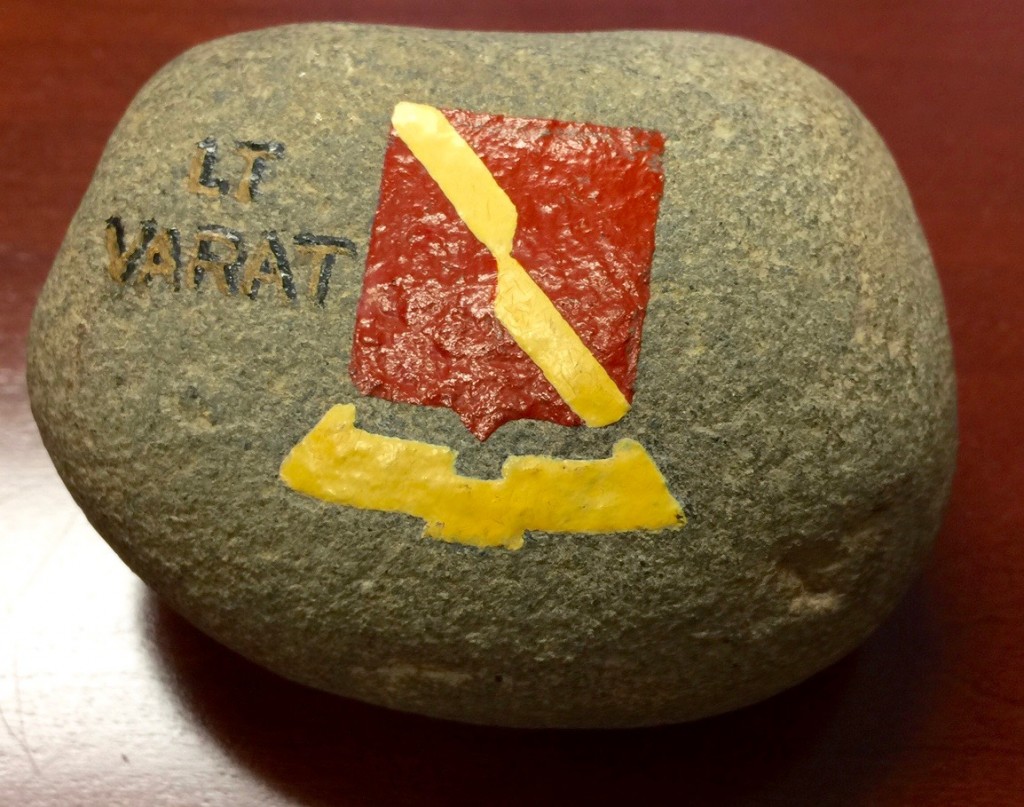
For the past forty-five years that paperweight has sat on my desk wherever I’ve gone. It’s surprising how few people comment on it. It is still sitting on my desk. I periodically look at it to remind me of this bond with the men I worked with.
